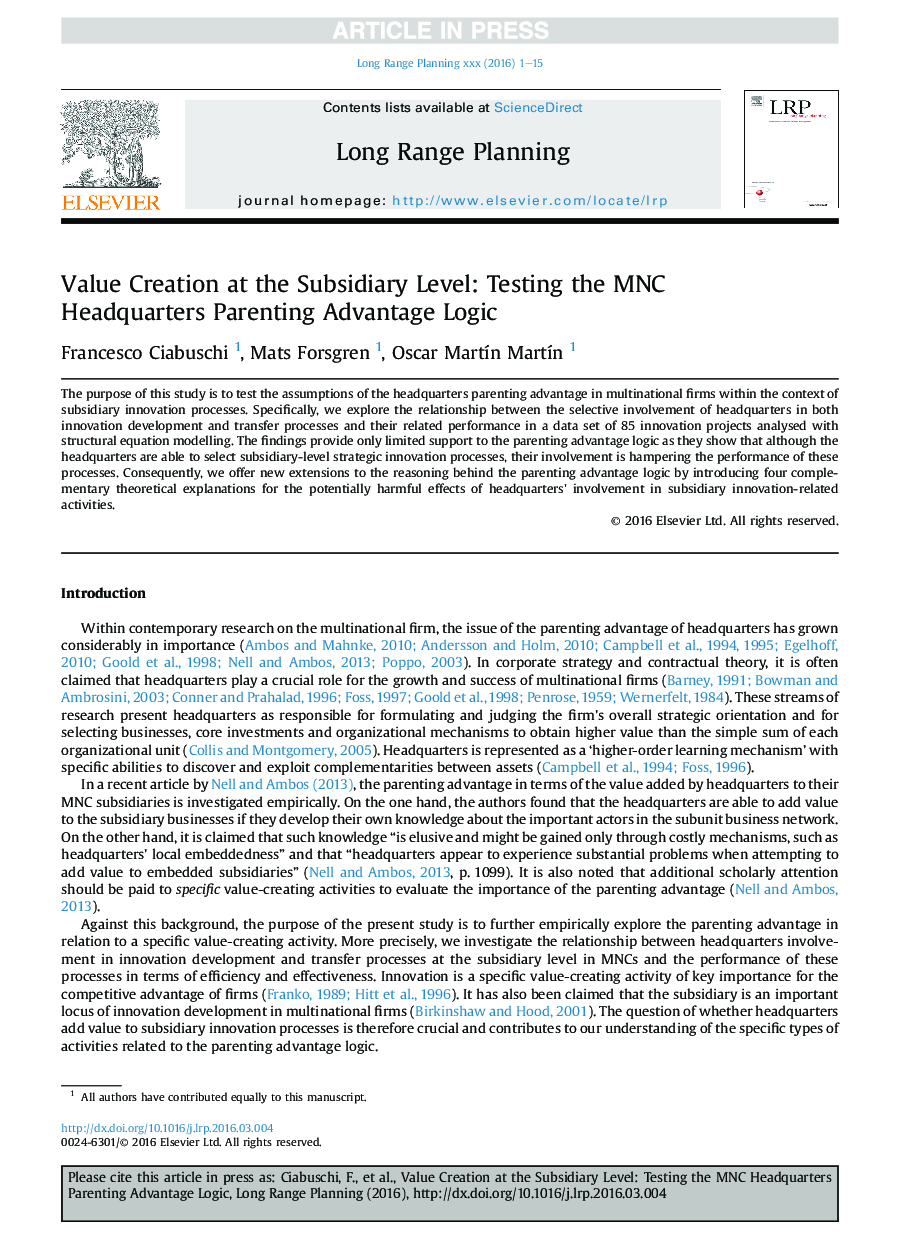| Article ID | Journal | Published Year | Pages | File Type |
|---|---|---|---|---|
| 5110268 | Long Range Planning | 2017 | 15 Pages |
Abstract
The purpose of this study is to test the assumptions of the headquarters parenting advantage in multinational firms within the context of subsidiary innovation processes. Specifically, we explore the relationship between the selective involvement of headquarters in both innovation development and transfer processes and their related performance in a data set of 85 innovation projects analysed with structural equation modelling. The findings provide only limited support to the parenting advantage logic as they show that although the headquarters are able to select subsidiary-level strategic innovation processes, their involvement is hampering the performance of these processes. Consequently, we offer new extensions to the reasoning behind the parenting advantage logic by introducing four complementary theoretical explanations for the potentially harmful effects of headquarters' involvement in subsidiary innovation-related activities.
Related Topics
Social Sciences and Humanities
Business, Management and Accounting
Business and International Management
Authors
Francesco Ciabuschi, Mats Forsgren, Oscar MartÃn MartÃn,
